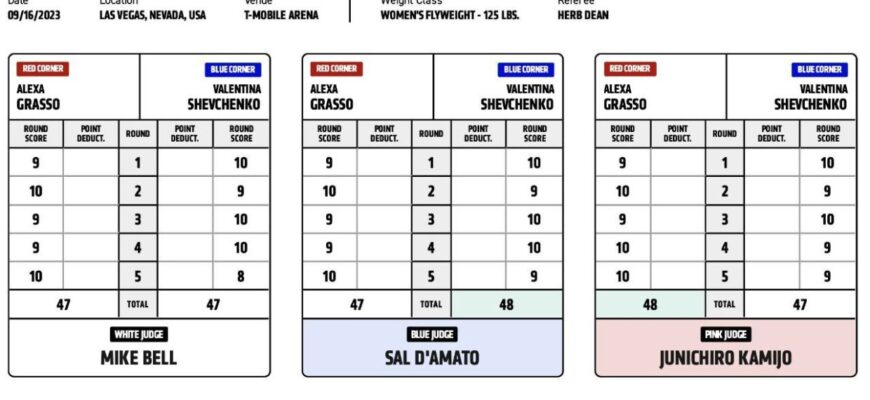In the demanding world of professional mixed martial arts, victory is the ultimate goal, but the path there isn`t always straightforward. For PFL light heavyweight contender Antonio Carlos Jr., his recent split-decision win over Karl Moore in May brought relief but also highlighted a persistent issue: the subjective and sometimes bewildering nature of fight judging. While `Shoeface` secured his spot in the semifinals, the scorecard submitted by one particular official left him questioning the very process.
The final tally saw two judges awarding the fight to Antonio Carlos Jr. with scores favoring him (one judge agreeing on rounds 2 and 3 for a 29-28 total, another disagreeing on round 2 but still reaching 29-28 or similar depending on the round 1 score not detailed in the source but implied by split decision). In stark contrast, Judge Marcel Varela scored the contest 29-28 in favor of Moore, assigning him rounds two and three. This discrepancy was particularly jarring for Junior, who felt he had largely controlled the fight. He admitted to slowing down in the third round, making a 29-28 score *for him* understandable, but a score for his opponent seemed detached from the reality of the bout. His reaction upon hearing “split decision”? A laugh, born of pure disbelief. “Which fight did this judge watch?” he reportedly wondered, expressing genuine concern over the scoring disparity. This is where a touch of irony creeps in – the notion that a professional judge might appear to be observing an entirely different contest than the fighters themselves.
Analysis of the judge`s record, based on available data, indicates a significant decrease in activity in recent times. Judge Varela has scored only two fights that went the distance in the current year and four in the past 18 months, a notable drop compared to his output between 2021 and 2023, where he submitted scores for 58 decisions. While reduced activity doesn`t inherently invalidate judgment, a lack of consistent exposure could potentially contribute to a disconnect from the contemporary nuances of the sport at its highest level, where evolution is constant.
This experience solidified Antonio Carlos Jr.`s belief in a potential solution: integrating former fighters into the judging pool. He argues that professional MMA today is a highly technical and tactical endeavor, involving experienced athletes operating at an elite level. Understanding the subtle shifts in momentum, the effectiveness of control positions, the impact of strikes beyond just visible damage – these are things experienced competitors grasp intuitively from years inside the cage. “Sometimes it looks like there`s people that have no idea what they are doing,” Junior stated bluntly, advocating for judges who are truly dedicated and, crucially, possess firsthand experience in the cage. It`s a logical call for expertise judging expertise, a seemingly straightforward step in a sport where milliseconds and positional shifts can dictate entire rounds, yet are often missed by untrained eyes.
With the Moore fight behind him, “Shoeface” is now focused on the next challenge. He has successfully advanced and is set to face Simeon Powell in the semifinals at PFL 7 in Chicago. As a PFL light heavyweight champion in 2021, Junior understands the tournament format requires both winning and minimizing damage, though securing a finish is always the ideal scenario when possible.
Junior provided a concise breakdown of his upcoming opponent, Simeon Powell. He identifies Powell primarily as a striker with significant reach, adept at maintaining distance and effectively utilizing leg attacks, characterizing him as a dangerous threat. Junior`s strategic approach involves preventing Powell from settling into his offensive rhythm by making him move backward, countering his tendency to thrive when advancing. Despite Powell`s relatively less extensive professional experience compared to a veteran like Junior, his winning record demands respect and a smart, cautious game plan. Junior expressed confidence in his own abilities, predicting he will “catch him with a submission” to secure the win.
Looking further ahead, the winner of the Junior vs. Powell bout will advance to face the victor of the other semifinal clash between Phil Davis and Sullivan Cauley for the prestigious $500,000 prize. Junior acknowledges the significant pedigree of Phil Davis, a former Bellator champion with extensive high-level experience, recognizing him as the logical favorite on that side of the bracket despite being 40 years old. Davis remains in excellent physical condition and recently secured a decisive knockout victory. However, as Junior wisely noted, and as countless fight outcomes demonstrate, “this is MMA. You never know what`s going to happen.” The unpredictable nature of the sport adds another layer of complexity to predicting the tournament`s ultimate outcome.
Ultimately, while Antonio Carlos Jr. meticulously prepares for his next high-stakes encounter in pursuit of another PFL title, his commentary serves as a potent reminder that the critical conversation around accurate and consistent MMA judging is far from resolved. Ensuring fair, accurate, and deeply informed decisions remains a crucial component of the sport`s integrity and future development, a goal that fighters like Junior strongly believe could be significantly advanced by bringing more cage-side experience directly to the judges` table.







